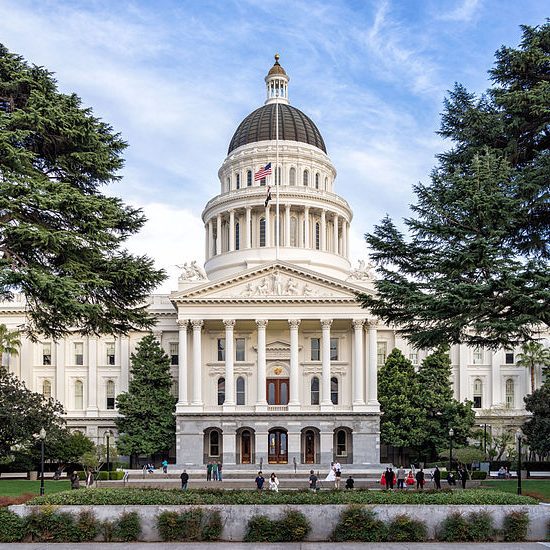
January 1st is the day that legislation passed in the previous calendar year – and signed by Gov. Gavin Newsom – takes effect.
As usual, the California State Legislature can’t be faulted for inactivity. On the heels of a feverish legislative session in Sacramento, Gov. Gavin Newsom signed a whopping 770 new California laws, vetoing just 66. The whiplash-inducing slate of new laws span nearly every subject imaginable, from making ethnic studies a high school requirement and requiring menstrual products in public schools to ensuring police can’t block journalists from covering protests and demonstrations and ending “surprise billing” for COVID-19 tests and vaccinations.
It’s easy to get lost in the avalanche of new legislation, so here’s a curated list of new laws of import to Mill Valley residents and businesses. For starters, Newsom signed a trio of pieces that allow restaurants and bars to expand outdoor and parklet service and alcohol sales, and to continue selling to-go alcoholic beverages.
He also signed legislation that makes California the first state to require a $15-an-hour minimum wage for businesses with more than 25 employees, though Washington, D.C., and many California cities in the Los Angeles and San Francisco Bay areas already reached that milestone behind the “Fight for 15” movement. For businesses with 25 or fewer employees, the new minimum wage is $14, and rises to $15 per house on January 2023. From then on, the wage will rise annually based on inflation.
Mill Valley bacon lovers have to digest a legislative oddity. After a 2018 ballot measure where California voters set the nation’s toughest living space standards for breeding pigs starting Jan. 1, grocers and restauranteurs are now suing to force a 28-month delay. Critics including some lawmakers of both parties have called for putting off enforcement until 2024 for fear prices will rise and jobs will be lost. California is allowing the continued sale of pork processed under the old rules, which proponents say should blunt any shortage and price surge.
There’s also new legislation around the waste associated with takeout food and the like, taking further its existing law that allows restaurants to distribute single-use straws only upon request. You’ll have to ask for that ketchup or mustard packet from now on, as Newsom signed a bill prohibiting restaurants and other food facilities from providing single-use foodware accessories or condiments — such as forks or soy sauce packets — unless they are specifically requested by the customer. The bill also requires third-party food delivery platforms, such as DoorDash, to list the availability of single-use items and provide them only if asked. Newsom also signed legislation that targets large food distributors like grocery stores, requiring them to donate edible food that would otherwise be thrown away to food banks or other organizations or face fines.
There’s no shortage of legislation focused on cutting waste, from a call for the nation’s strictest standards for the “chasing arrows” recycling symbol, as well tougher regulations for what can be used in compost. (Here’s our summary of the legislation and its requirements from September 2021). What California regulators say is the “biggest change to trash in 30 years” comes from a law passed in 2016 that takes effect Jan. 1. It requires local governments to provide organics recycling collection to all residents and businesses, and phases in a requirement for businesses and large food generators to donate unsold food to distribute to Californians in need.
On the diversity, equity and inclusion front, affordable housing, or Mill Valley’s lack thereof, has been top of mind for local leaders for much of the past several years, and 2022 brings with it the implementation of SB9, which allows property owners to split a single-family lot into two lots, which could lead to up to four residences on properties currently limited to one house and an accessory apartment.
As we mentioned above, there’s plenty more, including barring warehouse retailers like Amazon from firing workers for missing quotas that interfere with bathroom and rest breaks, prohibiting secret employment settlements involving discrimination based on race, religion, gender or sexual orientation, expanding on a 2018 law.
2021 saw the passage of another slew of laws related to restricting police behavior, including measures limiting police use of rubber bullets against protesters and providing a way to decertify troubled officers, though some of the certification process doesn’t take effect until January 2023. Other new laws bar a type of restraint hold that has led to deaths and specify when officers have a duty to intervene to prevent or report excessive force. Another expands the list of police misconduct records that must be made public. The state also is increasing the minimum age to become a police officer from 18 to 21 and requiring the state attorney general to investigate all fatal shootings by police of unarmed civilians, including those where there is a reasonable dispute over whether that civilian was armed.
